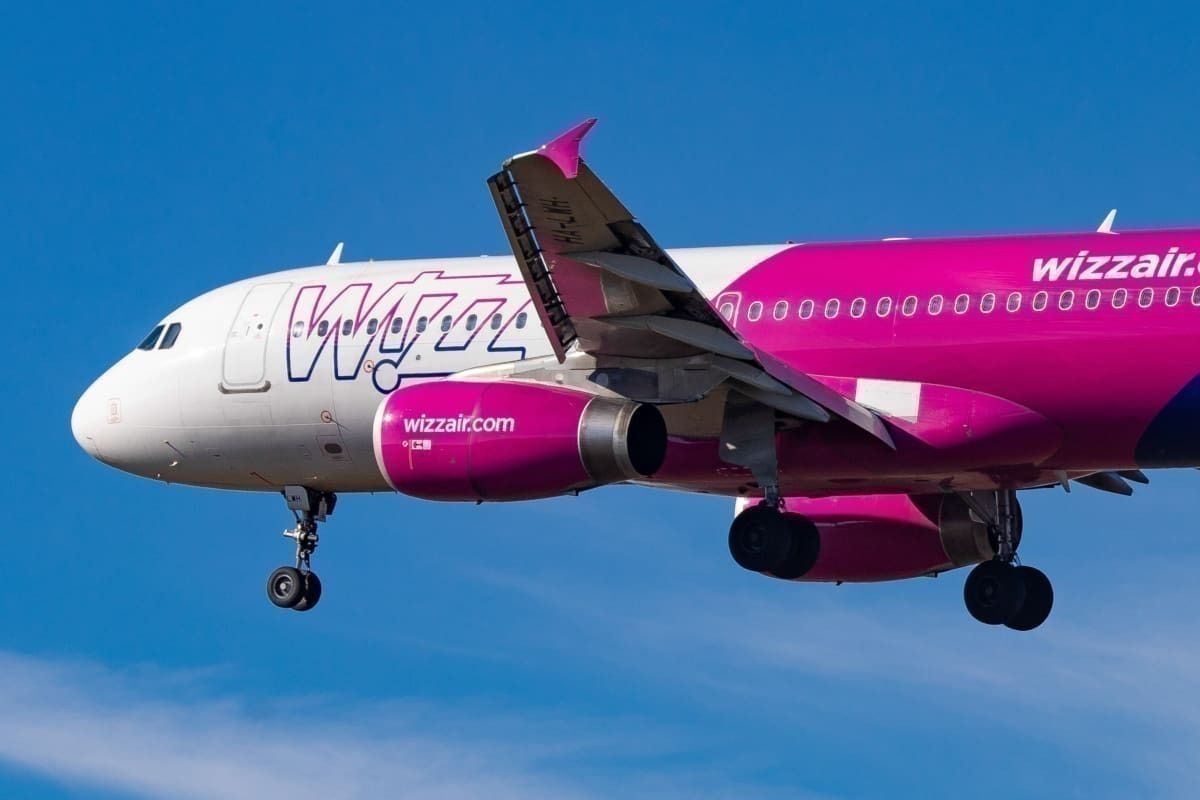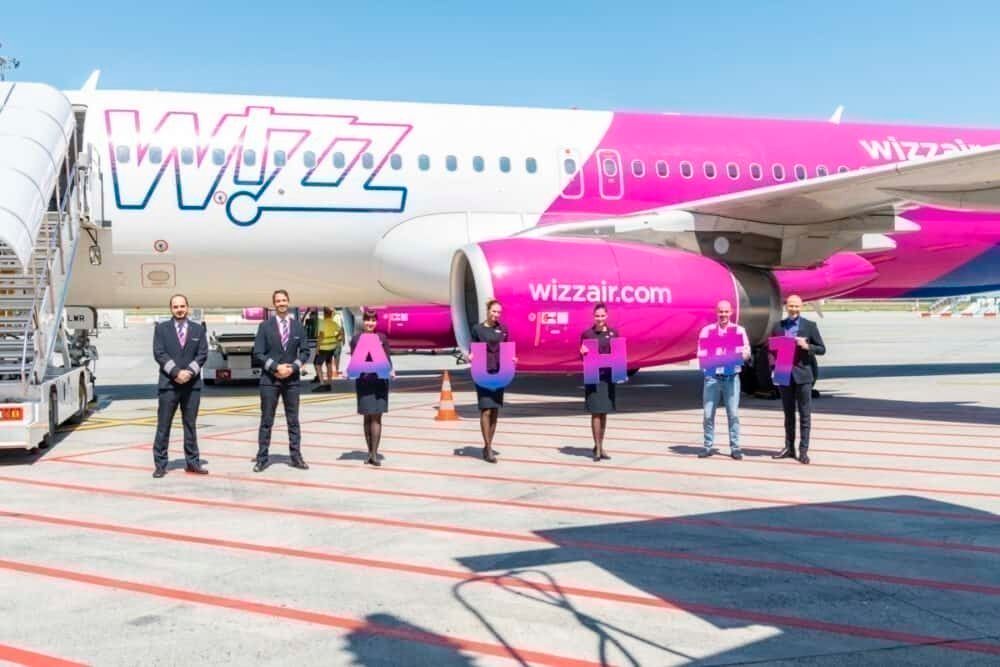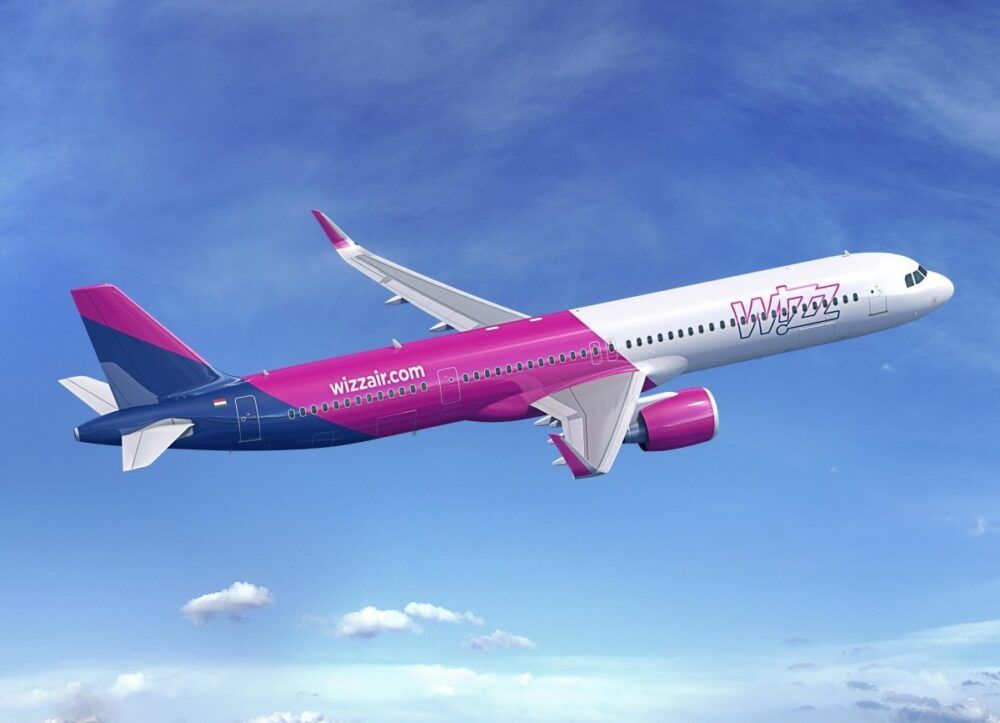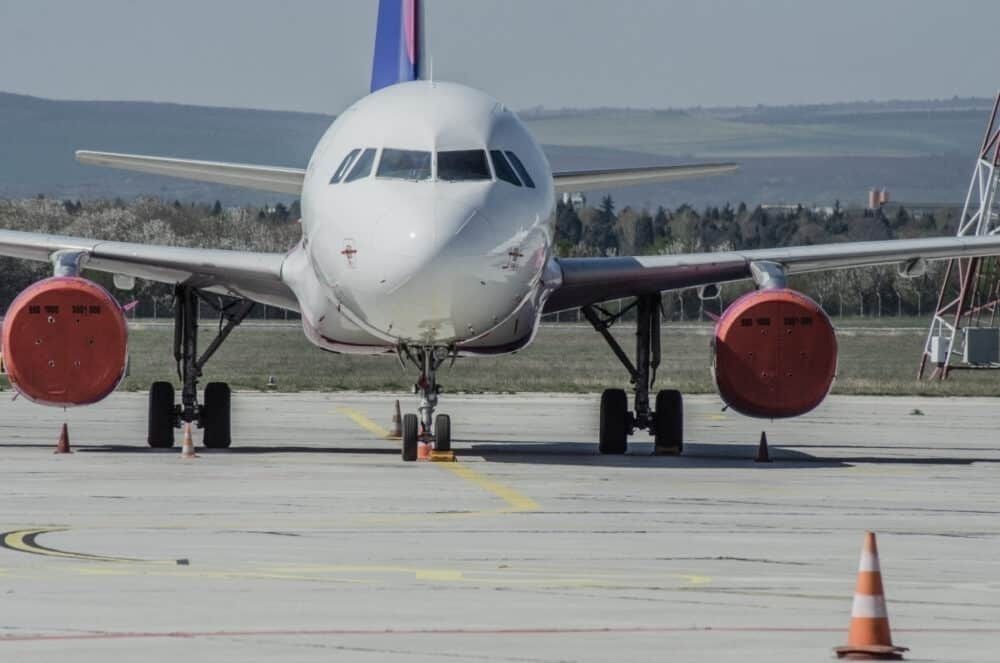Wizz Air’s first-quarter results are in. Unsurprisingly, today’s announcement was one of a loss, although that loss was moderate compared to some of its competitors. Despite losing over €100 million and suffering low load factors, the airline remains committed to new aircraft deliveries and finished the quarter with almost €1.6 billion in the bank.
A loss, but keenly preserving cash
Wizz Air’s financial year quarter one results, as announced this morning, shows that the airline fell to a pretax loss of just under €108 million ($125.8 million). Ticket revenue fell by 92.2% and ancillary revenue by 80.3%, leading to total revenue of just €90.8 million. Comparing this to the same quarter last year, where revenue was €691.2 million ($812.26 million), the impact of COVID is clear to see.
Stay informed: Sign up for our daily aviation news digest.
However, despite the challenges, Wizz Air has been one of the boldest airlines in Europe over the last quarter. The company launched more than 200 new routes, as well as establishing its base in Abu Dhabi ahead of the launch of its new subsidiary.
During the quarter, Wizz Air reported that it carried 700,000 passengers. Unfortunately, this reflected a load factor of just 55.5%, well below its usual level of 93.7%. In an interview with Bloomberg Markets this morning, CEO Jozsef Varadi said that this low load factor didn’t matter to Wizz. He said,
“Our load factor continues to improve. We are tracking around 65 to 70% as we speak … The cash break-even point measured on load factor is different from the overall profit break-even point, so we are contributing to cash.
“We are a cash neutral, slightly cash positive operation as we speak, and that's very important, because you have to manage these businesses for liquidity. We have a very strong liquidity position. Even if we don't operate a single flight in the next two years we'll still be in business, but we're very focused to preserve as much cash as we can.”
Wizz Air finished the quarter with a staggering €1.588 billion ($1.87 billion) of cash in the bank. That’s only 3% lower than what it had at the end of the same quarter of 2019, showing just how frugal this airline has been.
No Airbus deferrals
The airline took delivery of two more A320neo aircraft in the quarter, bringing its fleet to a total of 123 planes. Wizz now flies one of the youngest fleets of any major European airline, with an average aircraft age of 5.5 years. This has enabled Wizz to operate with the lowest CO2 emissions, evaluated to be 57.9 grams per passenger kilometer in the 12 months to the end of June.
While other airlines are looking to pause or defer aircraft deliveries right now, Wizz remains committed to its schedule of Airbus orders. Speaking about this, Varadi said,
“We took a strategic decision to continue to take new aircraft deliveries. New aircraft are a source of competitive advantage. As a result of operating new aircraft, we were able to lower our unit cost versus our competitors … being the lowest cost producer in the industry makes us a structural winner.”
A volatile recovery
Varadi has described the recovery as a ‘rollercoaster.’ He said that, although many markets are now expecting a stabilization of passenger increases going forward, he doesn’t believe that’s the case. He said,
“I think we should be expecting more of a rollercoaster effect. Things can improve and can deteriorate quite quickly, and it depends on the markets were talking about.”
He further talked about Spain as an example of a country that did a good job of controlling the pandemic in the first place but is now facing further challenges. He noted that when a country’s numbers are going in the wrong direction like this, other nations (like the UK) may take steps to restrict travel further.
“We should be expecting more and more of this,” he said. However, he did note that, despite needing to stay alert to changing situations, he thinks the overall outlook in Europe is improving. He explained,
“We are also seeing some European coordination coming into play. It used to be down to the [individual] countries to take all sorts of decisions and those were made in an uncoordinated fashion. I think that's improving, but certainly we are facing a period of uncertainty and volatility, so businesses will have to adjust and will have to be micro-managed in a way.”
While he refused to be drawn on whether Wizz would pull back from Spain as a result of the UK’s quarantine measures, he noted that the airline is adjusting its capacity on practically a daily basis to reflect changing demand.




